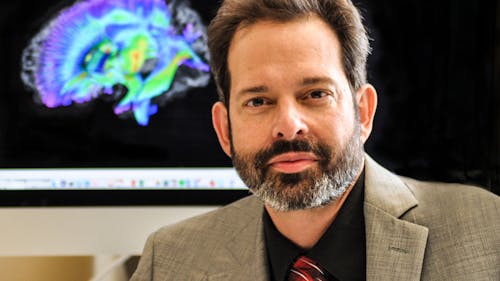Rutgers appoints new director for new Brain Imaging Center, set to open next year

A professor from Vanderbilt University in Nashville, Tennesse has been appointed as the director of the Rutgers Center for Advanced Human Brain Imaging Research, which is set to open next fall, according to Rutgers Today.
David H. Zald, the appointee, will also be working as a tenured professor holding the title of Henry Rutgers Term Chair in the Department of Psychiatry at Rutgers Robert Wood Johnson Medical School. Besides serving as a professor at Vanderbilt University, Zald is also currently the director of the Interdisciplinary Neuroscience Program for Undergraduates.
Zald, who is set to join the University in May of next year, will be responsible for organizing the magnetic resonance imaging (MRI) human brain imaging core facility, whose purpose is to support research of members at the University, Rutgers Biomedical Health Sciences, the Brain Health Institute and the Center for Computational Cognitive Neuropsychiatry.
The center will be located on Busch campus in Piscataway, in the Staged Research Building. One of its amenities includes a Siemens 3T MAGNETOM Prisma MRI scanner, which will be used for research. The scanner is able to determine changes in blood flow, consumption of oxygen and usage of glucose in the brain in order to measure the brain's structure and activity.
“We are excited to have Dr. Zald direct this new center, which will develop novel therapies for neuropsychiatric and neurological disorders, including addiction, schizophrenia, anxiety, depression, autism, brain injury and Parkinson’s and Alzheimer’s diseases,” said Gary Aston-Jones, director of the Brain Health Institute. “The center will play a key role in rapidly moving discoveries made by neuroscientists in basic science labs into the clinic for the benefit of patients.”
Zald is known as a leader in human brain imaging since he has previously conducted work on how the brain regulates emotions. He uses techniques on imaging and neuropsychology to observe and map the different functions of various parts of the brain, one being the mesolimbic dopamine system, which regulates motivation and one's desire for reward.
Due to his research, people now have a further understanding of how the brain is able to process effort versus reward, especially when it comes to disorders such as depression. More recently, he has looked at the relationship between emotion and attention, as well as economic decision-making in relationship to motivation. Other fields of research Zald is involved in include the difference between healthy people and those with mental disorders when it comes to reward processing and expending effort.
Zald has also researched the central nervous system, since parts of it are the core for certain behaviors, cognitive processes or psychological states of being when it comes to mental health disorders, as well as psychiatric disorders.
He is the author of more than 150 articles regarding brain changes related to Parkinson’s disease, obsessive-compulsive disorder and other mental illnesses. He obtained his Ph.D. in clinical psychology at the University of Minnesota in Minneapolis.



